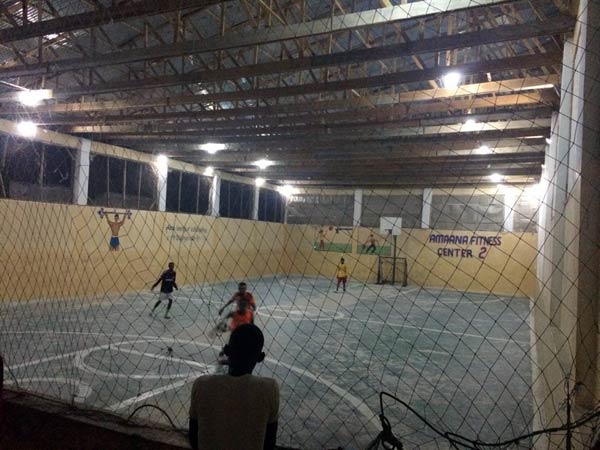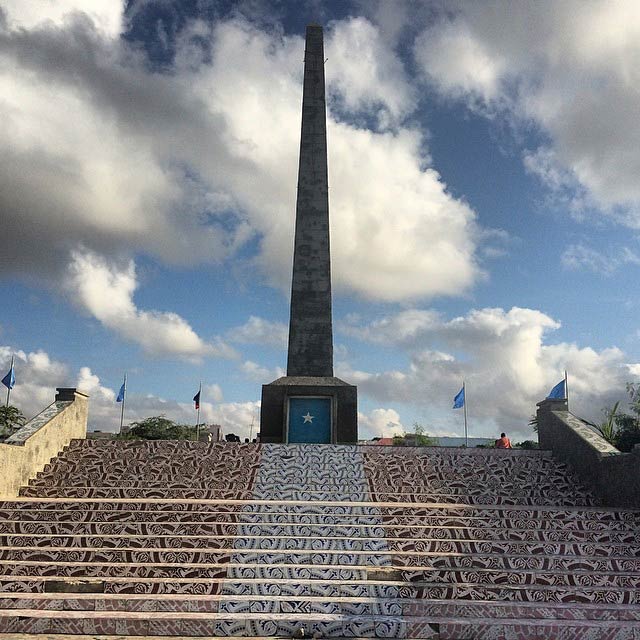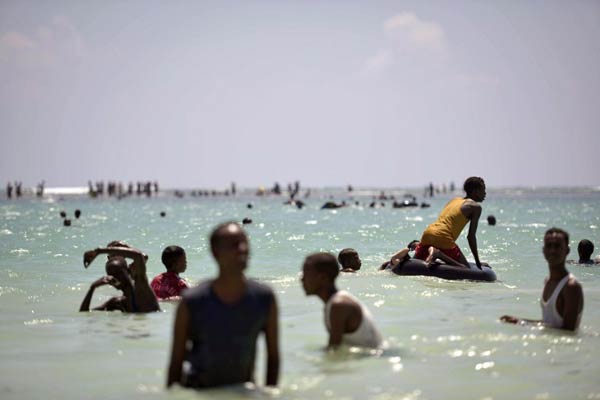It is 9 o’clock in the evening in Mogadishu. I am sitting in a teashop on Liberia Street in the Waberi district where I live. This street is popular among locals with tea shops, kiosks, fruit vendors and hawkers. Dozens of children from the neighbourhood are playing football in the street, cheering and urging each other on as they avoid the speeding cars.
This is not what you expect to see in Mogadishu, the place dubbed “the most dangerous city in the world” by western media and many journalists who have never actually set foot in Somalia.
While the kids play in the street, young adults walk in groups to the city centre to play soccer. They go to a place locally know as Sallax, a centre that hires out fields for various sports, including football and basketball . There are not enough football fields in the city and with everyone at work during the day, Sallax is very popular at night. Games usually last two hours. From my flat, I can often hear the youngsters chatting away past midnight on their way back home.

In the mornings in Waberi, the sound of the cock crowing coincides with the azaan (call to prayer) from the mosque, and soon thereafter the hooting of the city shuttle fills the air.
Children in colourful uniforms hurry to catch the minibuses to their respective schools; adults head off to work in public buses or their own cars.
I sometimes take the bus to my work place and always appreciate the lively conversations among the passengers as they debate the latest news or socio-economic issue. During weekends, the beach is teeming with locals young and old. ‘Local tourists’ from different parts of Somalia and diasporans also frequent the beach. They enjoy the comfort of the hotels facing the shore and make the most of swimming contests, soccer on the sand, high jumps and acrobats.

Daljirka Dahson is another popular tourist site which Mogadishu residents visit on their days off. The monument is dedicated to soldiers who fought and sacrificed their lives for the country. Traditional dancers entertain the crowds and countless photos of the national flags surrounding the site are captured.

With every day that passes, I realise how much of Mogadishu’s greatness I have yet to explore. I would never have known this side to the city if I hadn’t decided to move back and see the reality for myself. It was not my choice to leave Somalia but it was my duty and responsibility to come back after having lived in Kenya for most of my life.
The Somali people are associated with hunger, famine, lawlessness, piracy and conflict. These are the stories that dominate the headlines from the horn of Africa – and which overshadow the tale of resilience, recovery and reconstruction. Despite the increasing number of websites, radios and satellite television channels, success stories from Somalia are rare. It is only the overwhelmingly negative ones that get circulated.
Rasna Warah, a Kenyan writer and photojournalist, challenges Somalis to tell their own stories. In an interview with Africa Review in mid-2012 about her book Mogadishu Then and Now, she said, referring to the Somalis:
“You should be able to tell your own story; if you don’t, people will tell it for you and they will distort the facts to suit their interests. For Somalis, Mogadishu is or was the most beautiful city in the world; they will say the food is fabulous, they will talk about the theatre, and the stadium where they used to play football – and those are the narratives we are not hearing. If you don’t change that narrative, people will continue talking on your behalf.”
It is high time we take up the task of telling our own story.
Moulid Hujale is a journalist now working as a consultant for the United Nations Assistance Mission in Somalia (UNSOM). Follow him on Twitter: @moulidhujale
